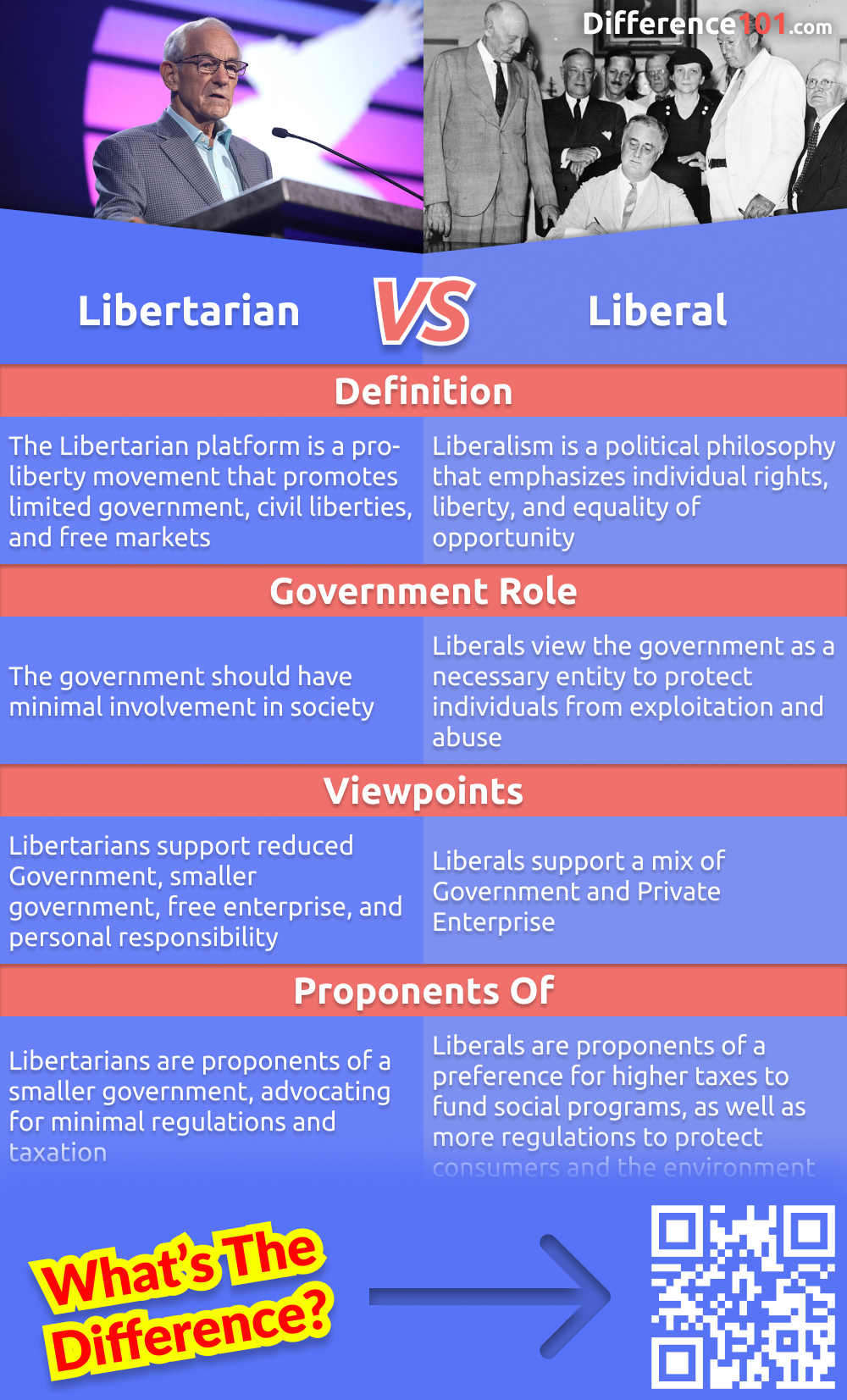Imagine this: you’re at a party, engaged in a lively debate about the role of government. One person passionately argues for increased social programs, while another fiercely defends individual liberty and limited government intervention. You might instinctively categorize them as a “liberal” and a “libertarian,” but what exactly separates these two political ideologies? Unpacking the nuances of these terms is crucial for understanding the diverse political landscape we inhabit.

Image: www.theodysseyonline.com
Navigating the political spectrum can be confusing, especially when terms like “liberal” and “libertarian” frequently get tossed around interchangeably. Are they simply different names for the same thing, or do they harbor distinct principles and beliefs? This exploration delves into the core tenets and historical context of liberalism and libertarianism, offering readers a clearer understanding of their fundamental differences and the ongoing debate surrounding them.
Liberalism: A Tapestry of Progress
Liberalism, a philosophy that emerged during the Enlightenment, champions individual rights, liberty, and equality. It emphasizes the importance of democratic institutions, free markets, and a government that protects individual freedoms while seeking to promote social justice. Liberalism is often associated with social progress, advocating for policies like LGBTQ+ rights, racial equality, and environmental protection.
At its core, liberalism believes in the inherent goodness of individuals and the potential for progress through rational discourse and democratic processes. It embraces a strong commitment to individual autonomy, allowing individuals to make their own choices within a framework of shared social values. This approach has led to significant advances in human rights and individual freedoms throughout history.
Libertarianism: Freedom’s Advocate
Libertarianism, on the other hand, takes a more radical approach to individual liberty, placing a high value on limited government intervention in all aspects of life. It advocates for minimizing government power, promoting free markets, and prioritizing individual responsibility. Libertarians generally believe in a strong emphasis on personal choice and freedom, advocating for policies like legalizing drugs, abolishing taxes, and reducing government regulation.
Libertarianism often emphasizes the individual’s right to self-determination, arguing that each person should be free to pursue their own happiness as long as they don’t harm others. It rejects paternalistic laws and regulations, seeing them as infringements on individual autonomy. Libertarians champion the free market as the most efficient and ethical way to allocate resources, believing that government intervention distorts the natural order and hinders innovation.
A Spectrum of Beliefs
While both liberalism and libertarianism prioritize individual freedom, their paths to achieving that goal diverge significantly. Liberals tend to support a larger role for government in promoting social welfare, ensuring equal opportunity, and addressing issues like climate change. They believe in collective action and a strong social safety net to help those who are disadvantaged.
Libertarians, conversely, argue for a more limited government role, believing that individuals are best equipped to make their own choices and manage their own affairs. They often prioritize individual responsibility and oppose government interventions that they see as violating individual rights.

Image: www.difference101.com
The Clash of Ideologies
This difference in perspective leads to differing views on a wide range of issues. For example, on healthcare, liberals often favor government-funded universal healthcare, arguing it is necessary to ensure access for all citizens. Libertarians, on the other hand, often prefer a market-based approach, advocating for private health insurance and reducing government regulation in the healthcare industry.
Similarly, on environmental policy, liberals often support government regulations to address climate change and protect the environment. Libertarians may favor market-based solutions, arguing that free markets are the best way to incentivize innovation and reduce environmental harm.
Finding Common Ground
Despite their philosophical differences, both liberals and libertarians share a common commitment to individual freedom and a desire to create a society where individuals can thrive. They often find common ground on issues like free speech, the right to privacy, and the importance of limited government power in certain areas.
Moreover, both ideologies have contributed significantly to the development of modern democratic societies. Liberalism has fueled movements for social justice, civil rights, and democratic reforms, while libertarianism has inspired advocates for economic freedom, free markets, and individual responsibility.
What’S The Difference Between A Liberal And A Libertarian
Understanding the Dialogue
Understanding the distinction between liberalism and libertarianism is essential for engaging in informed political discourse. It allows for a deeper appreciation of the diverse perspectives that shape our society and fosters a more nuanced understanding of the challenges we face.
Instead of resorting to simplistic labels, we can strive to understand the underlying principles that motivate different political viewpoints. This approach encourages empathy, constructive dialogue, and the possibility of finding common ground on issues that matter to us all.
Rather than focusing solely on the differences, it’s crucial to recognize the common aspirations shared by these ideologies – the pursuit of individual liberty and the creation of a just and prosperous society. Ultimately, navigating the complexities of political discourse requires open-mindedness and a willingness to engage with diverse viewpoints.





